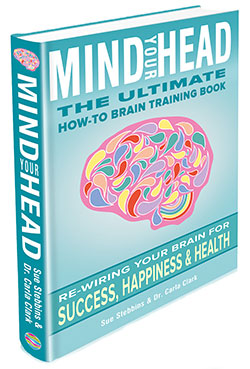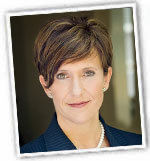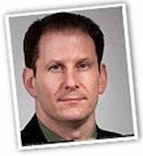What is an Emotion?
William James (1884)
Source: http://psychclassics.yorku.ca/James/emotion.htm
To discuss thoroughly this objection would carry us deep into the study of purely intellectual Aesthetics. A few words must here suffice. We will say nothing of the argument's failure to distinguish between the idea of an emotion and the emotion itself. We will only recall the well-known evolutionary principle that when a certain power has once been fixed in an animal by virtue of its utility in presence of certain features of the environment, it may turn out to be useful in presence of other features of the environment that had originally nothing to do with either producing or preserving it. A nervous tendency to discharge being once there, all sorts of unforeseen things may pull the trigger and let loose the effects. That among these things should be conventionalities of man's contriving is a matter of no psychological consequence whatever. The most important part of my environment is my fellow-man. The consciousness of his attitude towards me is the perception that normally unlocks most of my shames and indignations and fears. The extraordinary sensitiveness of this consciousness is shown by the bodily modifications wrought in us by the awareness that our fellow-man is noticing us at all. No one can walk across the platform at a public meeting with just the same muscular innervation he uses to walk across his room at home. No one can give a message to such a meeting without organic excitement. "Stage-fright" is only the extreme degree of that wholly irrational personal self-consciousness which every one gets in some measure, as soon as he feels the eyes of a number of strangers fixed upon him, even though he be inwardly convinced that their feeling towards him is of no practical account [2] . This being so, it is not surprising that the additional persuasion that my fellow-man's attitude means either well or ill for me, should awaken stronger emotions still. In primitive societies "Well" may mean handing me a piece of beef, and "Ill" may mean aiming a blow at my skull. In our "cultured [p.196] age," "Ill" may mean cutting me in the street, and "Well," giving me an honorary degree. What the action itself may be is quite insignificant, so long as I can perceive in it intent or animus. That is the emotion-arousing perception; and may give rise to as strong bodily convulsions in me, a civilised man experiencing the treatment of an artificial society, as in any savage prisoner of war, learning whether his captors are about to eat him or to make him a member of their tribe.
But now, this objection disposed of, there arises a more general doubt. Is there any evidence, it may be asked, for the assumption that particular perceptions do produce widespread bodily effects by a sort of immediate physical influence, antecedent to the arousal of an emotion or emotional idea?
The only possible reply is, that there is most assuredly such evidence. In listening to poetry, drama, or heroic narrative, we are often surprised at the cutaneous shiver which like a sudden wave flows over us, and at the heart-swelling and the lachrymal effusion that unexpectedly catch us at intervals. In listening to music, the same is even more strikingly true. If we abruptly see a dark moving form in the woods, our heart stops beating, and we catch our breath instantly and before any articulate idea of danger can arise. If our friend goes near to the edge of a precipice, we get the well-known feeling of "all-overishness," and we shrink back, although we positively know him to be safe, and have no distinct imagination of his fall. The writer well remembers his astonishment, when a boy of seven or eight, at fainting when he saw a horse bled. The blood was in a bucket, with a stick in it, and, if memory does not deceive him, he stirred it round and saw it drip from the stick with no feeling save that of childish curiosity. Suddenly the world grew black before his eyes, his ears began to buzz, and he knew no more. He had never heard of the sight of blood producing faintness or sickness, and he had so little repugnance to it, and so little apprehension of any other sort of danger from it, that even at that tender age, as he well remembers, he could not help wondering how the mere physical presence of a pailful of crimson fluid occasion in him such formidable bodily effects.
Imagine two steel knife-blades with their keen edges crossing each other at right-angles, and moving too and fro. Our whole nervous organisation is "on-edge" at the thought; and yet what emotion can be there except the unpleasant nervous feeling itself, or the dread that more of it may come?
[p.197] The entire fund and capital of the emotion here is the senseless bodily effect the blades immediately arouse. This case is typical of a class: where an ideal emotion seems to precede the bodily symptoms, it is often nothing but a representation of the symptoms themselves. One who has already fainted at the sight of blood may witness the preparations for a surgical operation with uncontrollable heart-sinking and anxiety. He anticipates certain feelings, and the anticipation precipitates their arrival. I am told of a case of morbid terror, of which the subject confessed that what possessed her seemed, more than anything, to be the fear of fear itself. In the various forms of what Professor Bain calls "tender emotion," although the appropriate object must usually be directly contemplated before the emotion can be aroused, yet sometimes thinking of the symptoms of the emotion itself may have the same effect. In sentimental natures, the thought of "yearning" will produce real "yearning". And, not to speak of coarser examples, a mother's imagination of the caresses she bestows on her child may arouse a spasm of parental longing.
In such cases as these, we see plainly how the emotion both begins and ends with what we call its effects or manifestations. It has no mental status except as either the presented feeling, or the idea, of the manifestations; which latter thus constitute its entire material, its sum and substance, and its stock-in-trade. And these cases ought to make us see how in all cases the feeling of the manifestations may play a much deeper part in the constitution of the emotion than we are wont to suppose.
If our theory be true, a necessary corollary of it ought to be that any voluntary arousal of the so-called manifestations of a special emotion ought to give us the emotion itself. Of course in the majority of emotions, this test is inapplicable; for many of the manifestations are in organs over which we have no volitional control. Still, within the limits in which it can be verified, experience fully corroborates this test. Everyone knows how panic is increased by flight, and how the giving way to the symptoms of grief or anger increases those passions themselves. Each fit of sobbing makes the sorrow more acute, and calls forth another fit stronger still, until at last repose only ensues with lassitude and with the apparent exhaustion of the machinery. In rage, it is notorious how we "work ourselves up" to a climax by repeated outbreaks of expression. Refuse to express a passion, and it dies. Count ten before venting your anger, and it occasion seems ridiculous.
[p.198] Whistling to keep up courage is no mere figure of speech. On the other hand, sit all day in a moping posture, sigh, and reply to everything with a dismal voice, and your melancholy lingers. There is no more valuable precept in moral education than this, as all who have experience know: if we wish to conquer undesirable emotional tendencies in ourselves, we must assiduously, and in the first instance cold-bloodedly, go through the outward motions of those contrary dispositions we prefer to cultivate. The reward of persistency will infallibly come, in the fading out of the sullenness or depression, and the advent of real cheerfulness and kindliness in their stead. Smooth the brow, brighten the eye, contract the dorsal rather than the ventral aspect of the frame, and speak in a major key, pass the genial compliment, and your heart must be frigid indeed if it do not gradually thaw!
The only exception to this are apparent, not real. The great emotional expressiveness and mobility of certain persons often lead us to say "They would feel more if they talked less". And in another class of persons, the explosive energy with which passion manifests itself on critical occasions, seems correlated with the way in which they bottle it up during the intervals. But these are only eccentric types of character, and within each type the law of the last paragraph prevails. The sentimentalist is so constructed that "gushing" is his or her normal mode of expression. Putting a stopper on the "gush" will only to a limited extent cause more "real" activities to take its place; in the main it will simply produce listlessness. On the other hand the ponderous and bilious "slumbering volcano," let him repress the expression of his passions as he will, will find them expire if they get no vent at all; whilst if the rare occasions multiply which he deems worthy of their outbreak, he will find them grow in intensity as life proceeds.
.
We Make it Easy to Succeed
Successwaves, Intl.
Brain Based Accelerated Success Audios
 |






